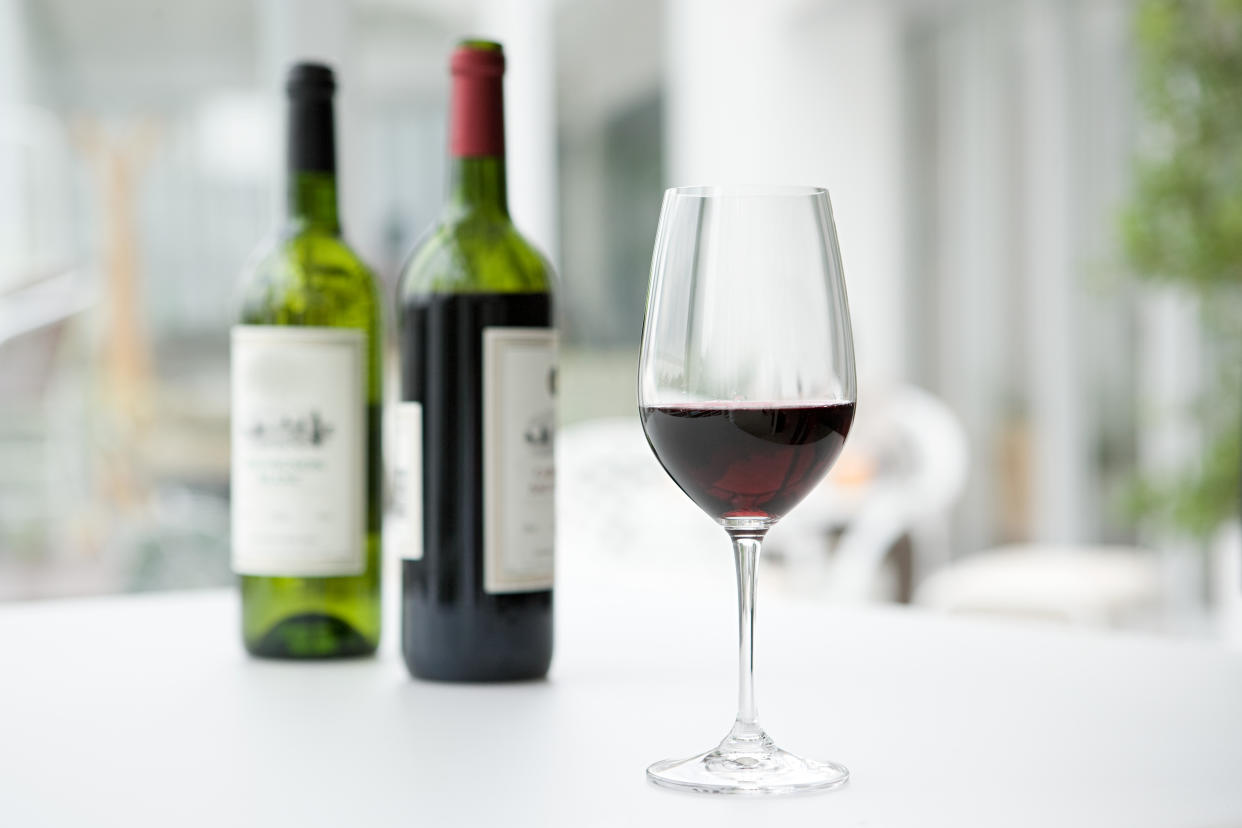'Regular lifestyle drinkers' make up bulk of liver disease patients, warns doctor

Many people enjoy a glass of wine or two after a stressful day.
While a daily tipple may seem like a harmless indulgence, a doctor who treats liver disease has warned "regular lifestyle drinkers" make up the bulk of his patients.
Speaking on ITV's "Are You Drinking Too Much?", hepatologist Dr Ryan Buchanan has warned that people who consume half a bottle of wine a day are putting themselves at risk of permanent liver damage.
The NHS recommends both men and women do not regularly consume more than 14 units of alcohol a week, with one unit equating to around half a pint of normal-strength beer, a 125ml glass of 12% wine or a single shot of spirits.
Read more: Any alcohol is bad for the brain
Amid the stress of the pandemic, "deeply worrying" statistics have revealed alcohol-related deaths hit a record high.

"Anyone who is consuming above the recommended units of alcohol is putting themselves at risk," said Dr Buchanan, who lectures at the University of Southampton.
"This risk applies to people who have full-time jobs, who are perhaps coming home and having half a bottle of wine or a bottle of wine every night of the week.
"They're just regular, frequent lifestyle drinkers that wouldn't expect to be putting themselves at risk but they are and it's frightening."
Read more: When to ditch alcohol to maximise pregnancy chances
People who drink 14 units a week are advised to spread their consumption out, with several alcohol-free days.
In England and Scotland alone, just under a quarter (24%) of adults regularly exceed the NHS' guidelines on drinking.
On people's heaviest days, 27% of drinkers in Great Britain binge, defined as consuming more than eight units for men and six units for women in one sitting.
Perhaps surprisingly, Dr Buchanan has claimed most of his patients are not extreme drinkers.
Alcohol-related liver disease (ARLD) rarely causes symptoms until the organ is severely damaged.
Regular drinkers therefore "live on a knife edge", according to Dr Buchanan.
Read more: One small glass of alcohol a day raises risk of irregular heartbeat
When symptoms do emerge, ARLD can trigger unexplained weight loss, nausea, confusion and drowsiness. Other tell-tale signs include jaundice, vomiting blood or passing it in your stools, and swelling of the ankles or abdomen.
The liver has been described as "the most forgiving organ", with fatty liver disease being reversible if a patient stops drinking for just two weeks.
Left untreated, they can develop the life-threatening condition alcoholic hepatitis. The liver can also become seriously scarred, known as cirrhosis, which often also causes no obvious symptoms.
"Are You Drinking Too Much?" – which aired on 29 July and is available on the ITV Hub – also featured the journalist and recovering alcoholic Toby Winson, who drank "all day every day" during his teens and early twenties.
Sober for five years, Winson has described the pandemic as a perfect "breeding ground" for alcoholism.
"I knew alcohol would become a crutch for many," he said.
"Isolation, furlough, restrictions and death led to stress, anxiety, pain and grief for many. Alcohol offers a temporary escape from all of these.
"I know how easy it can be to allow that crutch to become the centre of your universe".
In February, 2021, data from the Office for National Statistics revealed 5,460 alcohol-related deaths were registered in England and Wales between January and September, 2020 – a 16% increase on the same nine months the year before.
On the ITV programme, Dr Buchanan revealed his liver ward was the busiest department in the hospital during summer 2020, full of "regular drinkers".
"People are holding down great jobs, living pretty normal lives, only drinking in the evenings but still doing devastating damage to their livers," said Winson.
The journalist also explored how alcohol support was forced to change during the height of the pandemic, with Alcoholic Anonymous meetings going online, which many complained was "not the same".
Minimum unit pricing, a policy that states each unit of alcohol must cost at least a set amount, has made cheap alcohol considerably more expensive since it was introduced in Scotland in September, 2018.
As a result, alcohol-related deaths are said to have fallen year on year, with consumption among Scottish residents reaching its lowest level in 26 years in 2020.
The UK government has said it is committed to tackling alcohol dependency, however, many worry funding is an issue.
Winson concluded: "You do not need to be drinking at 6am to do severe damage to your health.
"Many who think they are drinking responsibly, could actually be damaging themselves and their relationships significantly.
"I think education has a big part to play if we are to reduce alcohol harm."


